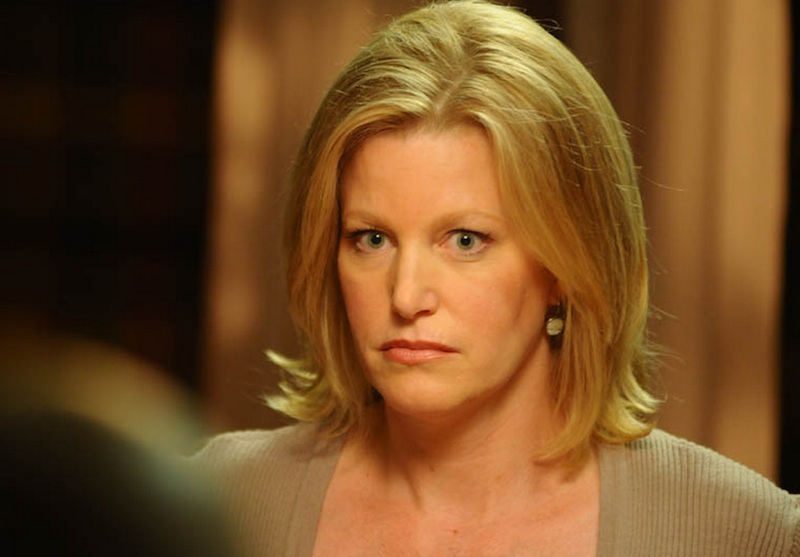For her incredible portrayal of Skyler White, the wife of the antihero Walter White on the hit show Breaking Bad, Anna Gunn won a well-deserved Emmy last week. I’m glad she got recognition for a sterling acting performance. But perhaps even more deserving than Gunn is the show’s creator Vince Gilligan and his team of writers for creating such a compelling character. Skyler may be “the most fully realized female character in the history of American TV,” one fan went so far as to write on Facebook.
Gilligan and his team have given fans, and women in particular, many reasons to celebrate the character of Skyler White. Smart, complex, bold yet vulnerable, she is the kind of dynamic and realistic woman that isn’t portrayed often enough on TV.
So I find it all the more puzzling and disheartening that a contingent of Breaking Bad fans hate Skyler White. Hating on Skyler White became an Internet meme rife with posters calling her a bitch and a “Fuck Skyler White” Facebook page that received nearly 30,000 likes. The phenomenon drove Gunn to write an op-ed for the New York Times arguing that her character had became a “flash point for many people’s feelings about strong, nonsubmissive, ill-treated women.”
The hatred, as Gunn concluded in her Times editorial, reflects a lack of comfort with a character that didn’t “conform to a comfortable ideal of the archetypical female.”
As the series comes to an end this weekend, it’s worth rebutting these angered fans and examine what exactly makes Skyler such a positive female role.
Throughout Walter’s journey from high school chemistry teacher to a homicidal leader of a meth empire, Skyler is Walter’s only equal. The rest of the main characters, Jesse Pinkman — his former chemistry student turned partner in the drug trade — in particular, are seen by Walter as clay he can mold to his liking. But not Skyler. Time and again, she serves to limit Walter’s omnipotence and remind him of his emotional shortcomings.
When Walter starts disappearing for hours on end to cook meth giving bogus explanations about needing alone time, she gives him a taste of his own medicine. Skyler starts disappearing without explanation giving Walt the same lines. He grows exasperated and is plagued for much of the series about his inability to regain her loyalty and love.
Skyler forces Walter out of the house and convinces him to agree to a divorce after she uncovers the truth about his meth manufacturing habits. Eventually Walter maneuvers his way back into the home, but he is thwarted nonetheless, and the only reason they stay married is because Skyler decides not to file the papers. She also succeeds in getting the children out of the house for several months, much to Walter’s distress. And without asking for Walter’s permission, she gives away nearly all of the money he has at that time (although, it is to protect both of them from being audited by the IRS).
What’s impressive about Skyler is not only the fact that she tempers Walt’s power, but that she refuses to cede her own power.
She convinces Walter to launder his drug money through buying a car wash, where he used to work part time, as opposed to letting him buy a laser tag joint, as recommended by Saul Goodman, the family lawyer. When Hank Schrader, the DEA agent married to Skyler’s sister, confronts Skyler in the diner, revealing that he knows the truth about Walter, she doesn’t back down. I don’t interpret that as loyalty to Walter, but rather looking out for the best interest of herself and her children. And to top it all off, in the antepenultimate episode of the show, she takes a knife to Walter slicing open his hand. I don’t know about you, but I thought it was a pretty badass act of defiance, albeit a horrifically painful one to watch.
Another important act of defiance is Skyler’s affair with her boss, Ted Beneke.
Understandably, Skyler lashes out at Walter for putting her in this miserable situation. As one might expect, it doesn’t turn out to be a long-term solution to her problems, but I like the fact that she is entitled to this transgression. Lest you judge too quickly about how immoral it is to have an affair, remember that the entire show us fans have come to lovingly devour is about Walter indulging his perverse emotional needs. Isn’t the lead female character entitled to address some of her own?
Throughout the entire series, Skyler navigates the nightmare she was brought into, and then helped to exacerbate, with intelligence and resourcefulness. She isn’t a noble character, but she is eminently understandable and credible. In Gunn’s own opinion, as she expressed in a panel discussion convened by the New York Times, Skyler’s intellect is as sharp as Walter’s. That is evident at every turn of the plot.
On the same day Gunn wrote her editorial for the Times, I created a Facebook page dedicated to fans of Skyler White. Could it get more likes than the ones dedicated to hating her? It turns out the answer to that question is no. So far, it has only received 102 likes. But such a terrific character doesn’t need to be quantified in Facebook support.
Krigman is journalist based in Washington, D.C. Her work has appeared in the New York Times, the Washington Post and Slate, among other places.






